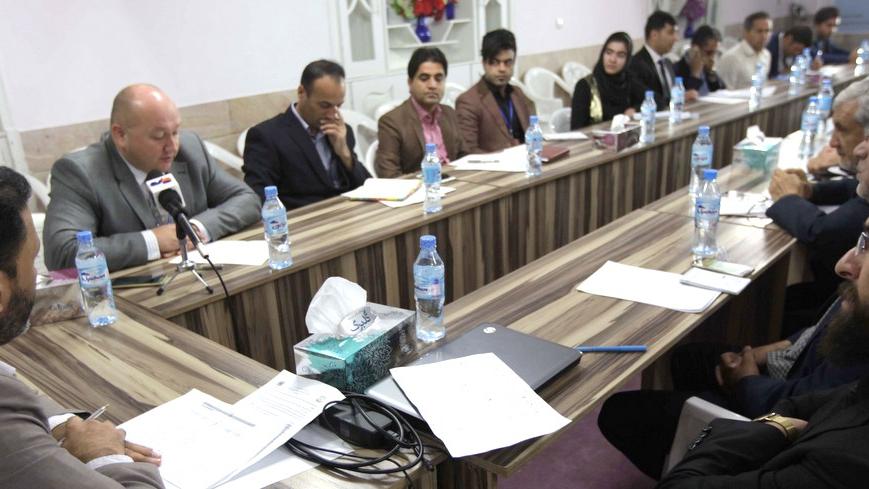HERAT - Identifying effective ways to move forward in the fight against corruption was the focus of a UNAMA-backed anti-corruption forum in the provincial capital of western Herat province.
Around 30 people took part in the one-day event, representing key government departments and civil society organizations, and coming under the umbrella of the Herat-based Anti-corruption Monitoring and Evaluation Committee (MEC).
Participants highlighted insecurity, insufficient technical capacity and low salaries in the civil services as factors contributing to corruption.
Mohammad Naim Bahir, Financial Manger at the Herat Governor’s office said that the fight against the ‘corruption cancer’ – including implementation of an anti-corruption strategy and administrative reforms -- will continue until the scourge is eliminated.
“Local government is serious in its fight against corruption,” said Mr. Bahir. “We have referred 115 military and civilian cases of government employees to the judicial bodies over the past six months.”
Mr. Bahir said that civil society had an important role to play in evaluate the progress of local government reform.
Millad Motahari, an administative officer at Herat Customs, said that the department had received extra funding to support anti-corruption efforts, which include increased computerization of administrative processes.
Abdul Qodos Yasin Zada, Deputy Chairperson of the MEC, said that corrupt practices threatened investment, trade, and economic growth in the province.
Aliaksandr Kuzmin, the Team leader of UNAMA’s Governance Unit in Herat, reaffirmed the UN’s continued support to the active engagement of civil society in provincial sub-national governance and development processes.
UNAMA is mandated to support the Afghan Government and the people of Afghanistan as a political mission that provides good offices; promotes coherent development support by the international community; supports the process of peace and reconciliation; monitors and promotes human rights and the protection of civilians in armed conflict; promotes good governance; and encourages regional cooperation.






